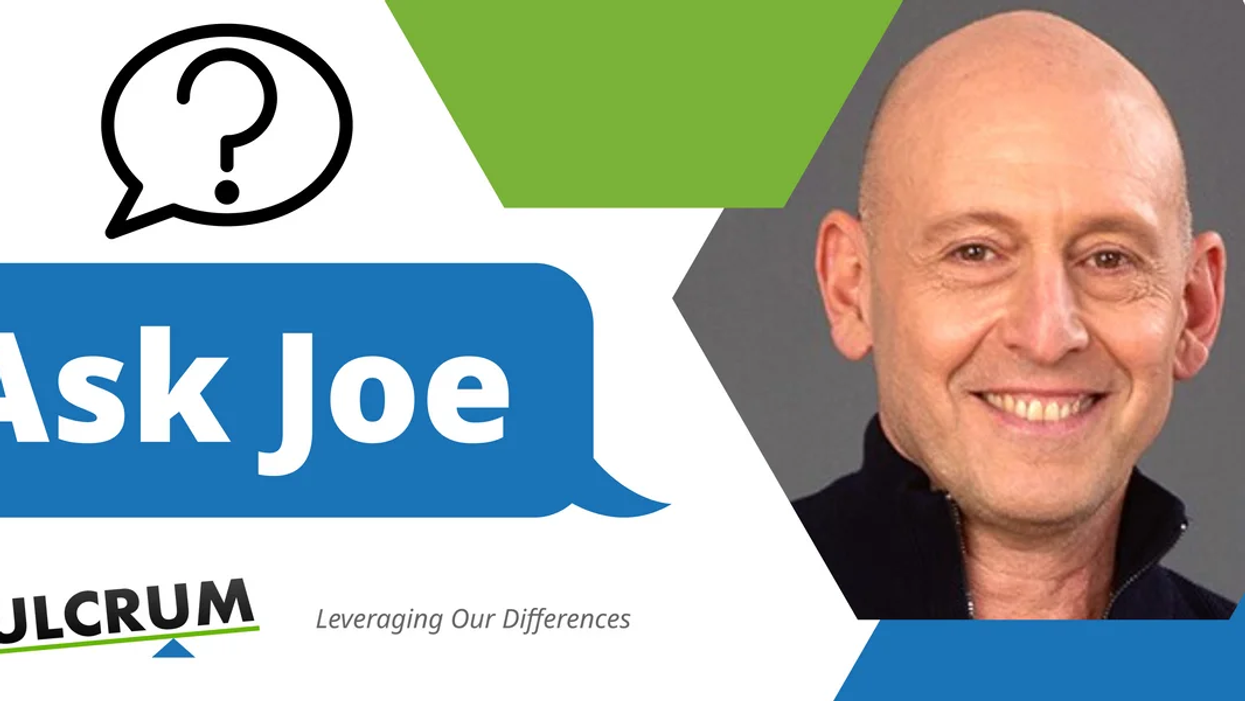Dear Joe,
I enjoy reading your posts. They make me feel good and I get some good insights. But it’s hard to believe that the things you propose will actually work or make things better. I don’t mean to be rude, but I think it’s worth saying.
Skeptical
Hey Skeptical,
I love this! Thanks for speaking your truth! This is how real dialogue begins; and with real dialogue, comes the possibility for real, lasting solutions. I see it the same way: on their own, the perspectives and solutions I offer will not necessarily solve our societal problems. But what I also truly believe is that, no matter how many millions of dollars and years we invest in solutions to our personal and cultural problems, none of them will actually be successfully implemented if we don’t also include these skills and strategies of the heart.
Identifying the root cause of any problem makes it easier to establish concrete and targeted strategies to mitigate it. “There comes a point where we need to stop just pulling people out of the river. We need to go upstream and find out why they’re falling in,” advised South African theologian and civil rights activist Bishop Desmond Tutu.
The fundamental causes of our current dilemma won’t be found or solved in only numbers and statistics. If that were the case, we would have already solved them. Before we can begin to course-correct ourselves, we must address two underlying core reasons for our inability to realize the emergence of new and lasting solutions: Because of the debilitating effects of our chronic personal and collective trauma, our nervous systems keep us in a constant state of fight-flight-freeze, perceiving anything that is different as a threat. This has, over time, shut down our hearts. Until these issues are addressed and resolved, we will continue to lock horns, deluding ourselves that we are actually making progress.
The current global uncertainty and dysregulation have created deeper levels of fear and imbalances in our world system. This increases anxiety, confusion and burn out. We see indicators of this in national health statistics. The U.S. Centers for Disease Control reports that the percentage of Americans suffering from severe depression and despair rose from 36.4 percent in 2020 to 41.5 percent in 2021. Nearly one in five adult Americans (21 percent) experienced mental illness in 2020, according to the U.S. National Alliance for Mental Illness—roughly 52.9 million people, which led to $193.2 billion in lost earnings. Add to that the reality that hate crimes and other acts of violence have been on the rise around the world.
We see acute examples of this chronic, impulsive survival response playing out politically and culturally today. For instance, some of us have taken a “fight” stance and are actively trying to tear down the system, forcing the process of change to happen before it’s ready to shift. We threaten the lives and safety of public servants and their families who hold different views, or we “cancel” those who can’t seem to keep up with us.
Others resort to a “flight” response, running as fast as we can away from the inevitability of progress. Holding onto a way of life in the past that felt safe and trustworthy, we create policies that don’t seem to meet the needs of our time. We ban books from schools and claim the right to believe whatever facts suit us. Other groups of us fall into the reactive response of “freeze”, burying our heads in the sand. Even though we can see the pain and suffering of others, we choose to not get engaged for fear of losing the things that currently bring us safety and security. We see the injustices of our time, but don’t seem to know how to be part of the solution.
Looking around, I think it is safe to say that our current ways of engaging and communicating are not effective enough to successfully address these primal biological, cultural and personal dysregulated impulses of survival—the fight-flight-freeze response—that lead to the breakdown of cooperation, “civil” civic engagement, personal agency and independent, critical thinking.
Therefore, whether we like it or not, we need to cultivate a revised and upgraded way of communicating that fosters trust and collaboration, and lessens the extremes of division, fear and mistrust – an approach that is not just civil or fierce, but a synthesis of both civil and fierce. We must move through the mental constructs that create separation, get back into our hearts and remember who we all are at our best.
That’s where my Fierce Civility Approach (which I’ve referenced many times) comes in. Its integral, human-centered strategies and tools help us cultivate resilience, meeting challenges with compassion, and deescalating tensions before they rise to conflict. For me, being in one’s heart is not some saccharine-sweet greeting card sentiment. It is a strategic way of being, supported by a comprehensive set of skills, that challenges us to embody courage, wisdom and patience in order to artfully and respectfully engage with those who are different from us.
So, Skeptical, I recommend you continue to question – in a healthy, balanced way – any information you receive. Trust your own intellect and wisdom. And perhaps consider that adding the conscious strategy to appeal to the hearts of others may actually increase the effectiveness of your goals and mission.
From the heart,
Joe
Learn more about Joe Weston and his work here. Make sure to c heck out Joe’s bestselling book Fierce Civility: Transforming our Global Culture from Polarization to Lasting Peace, published March 2023.
Have a question for Joe? Send an email to AskJoe@fulcrum.us.



















